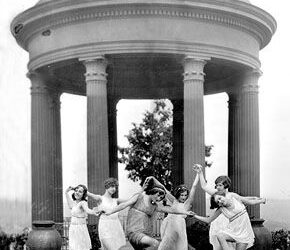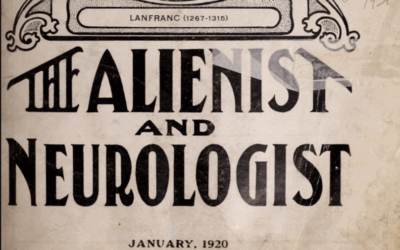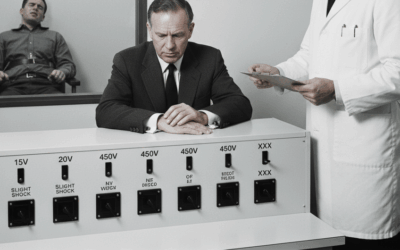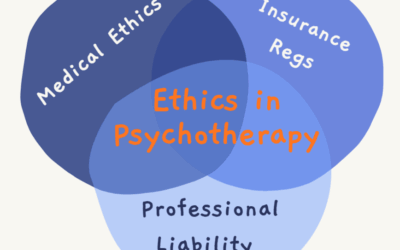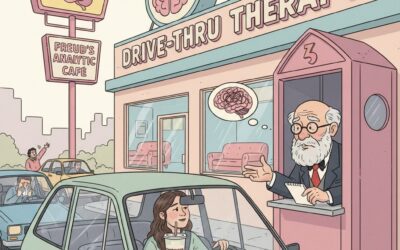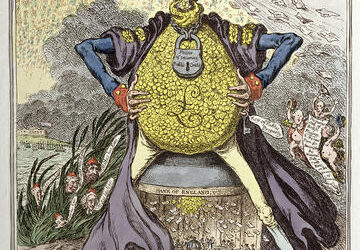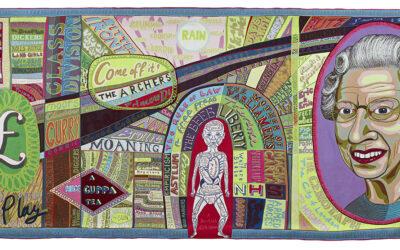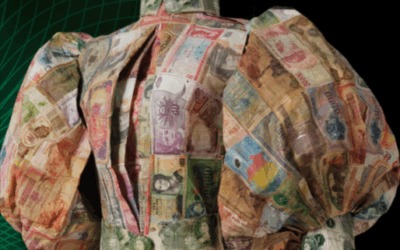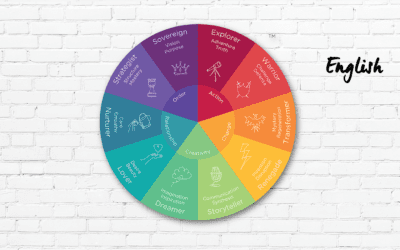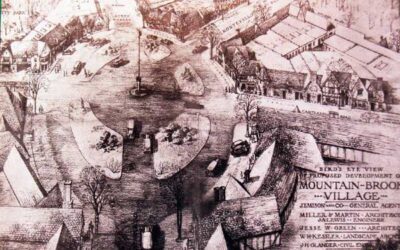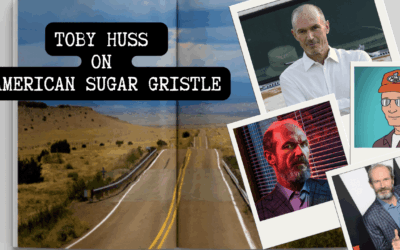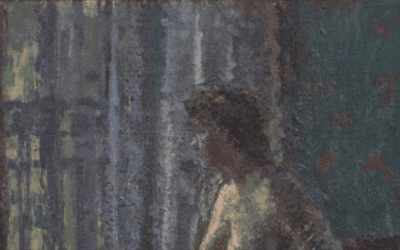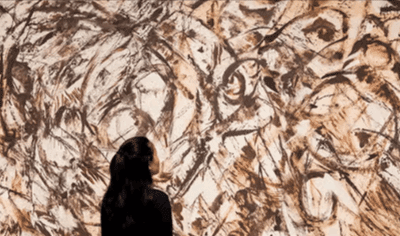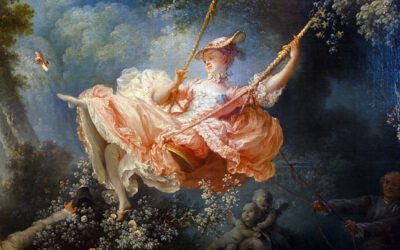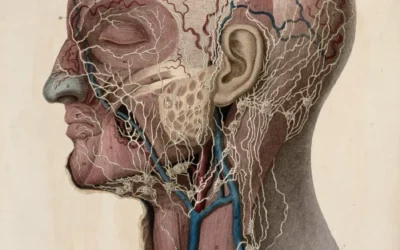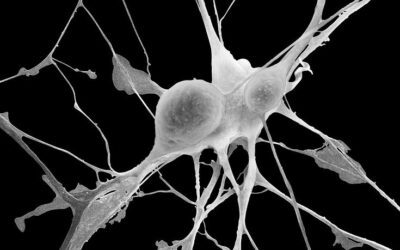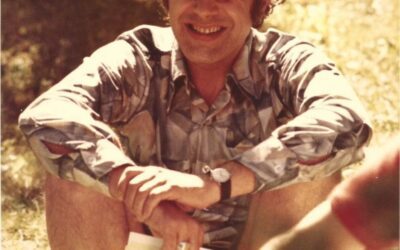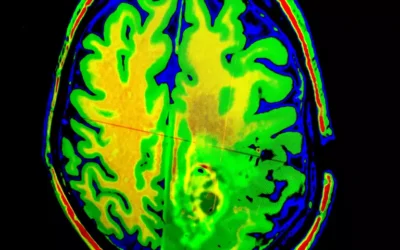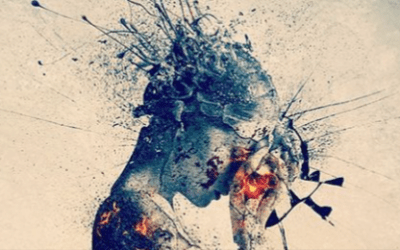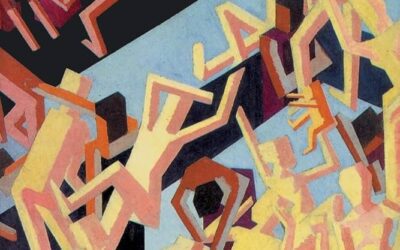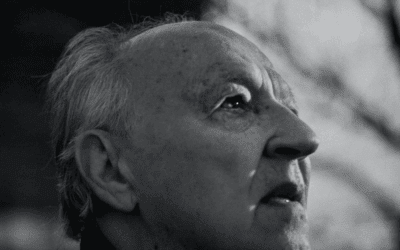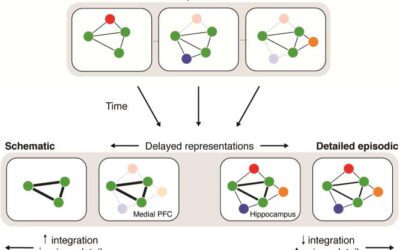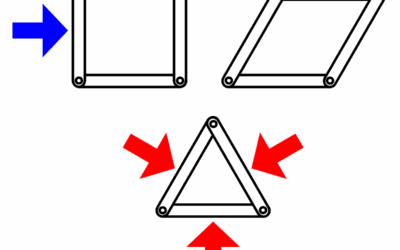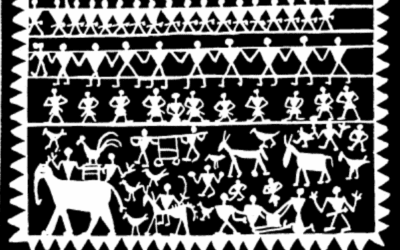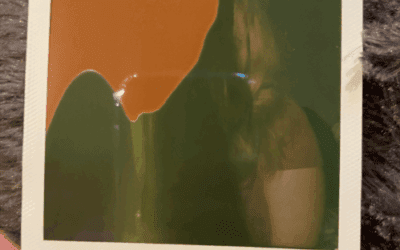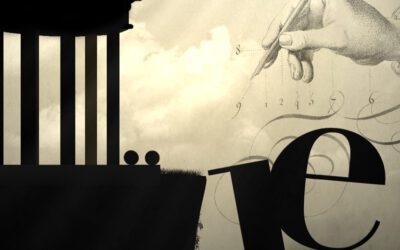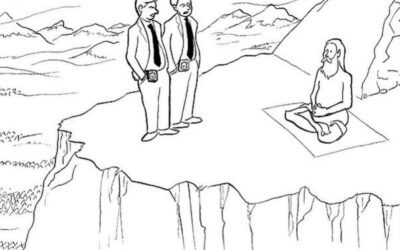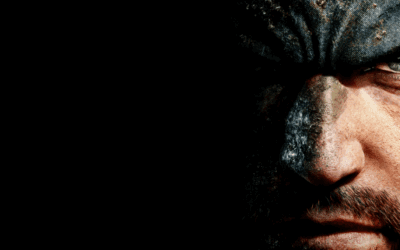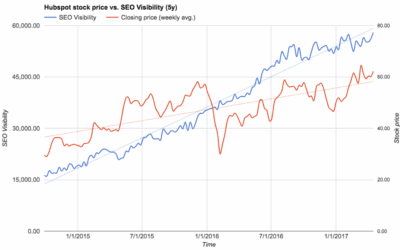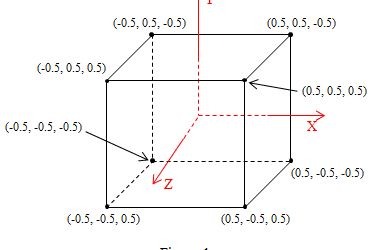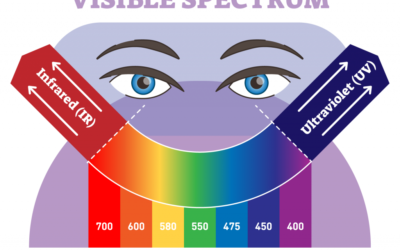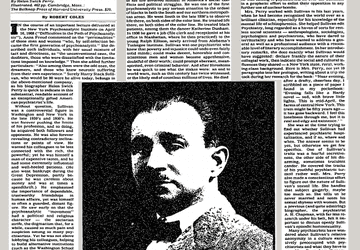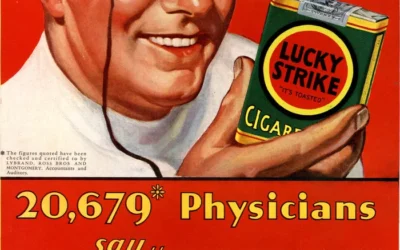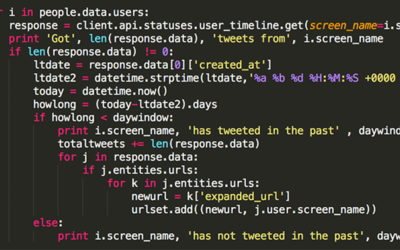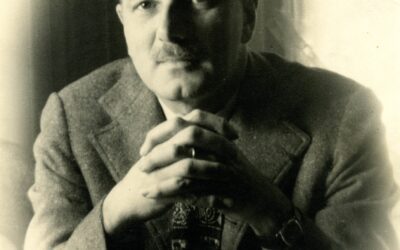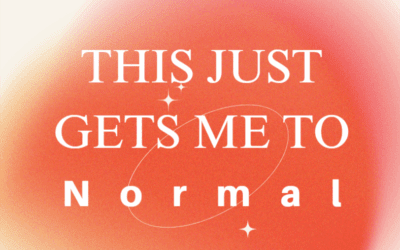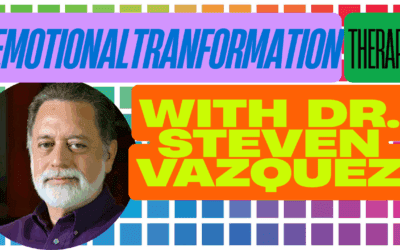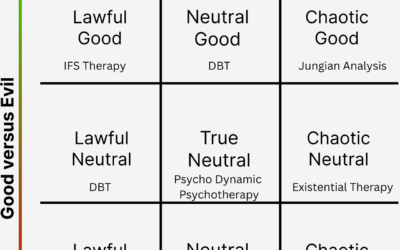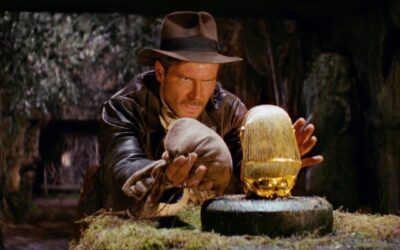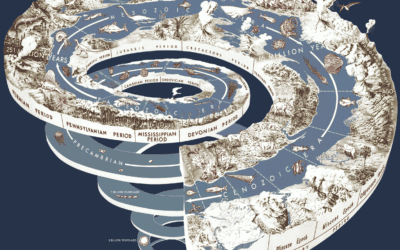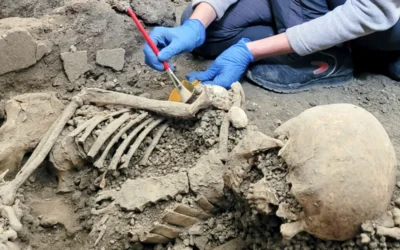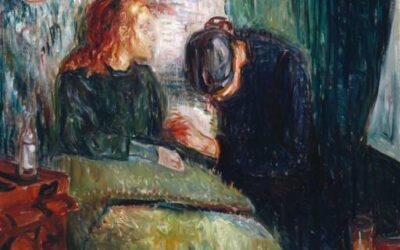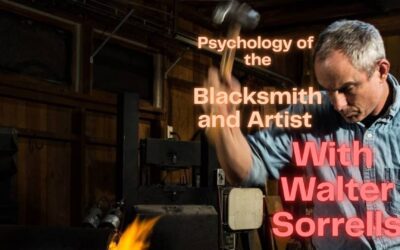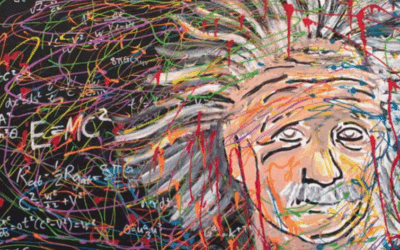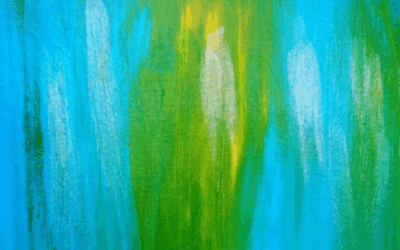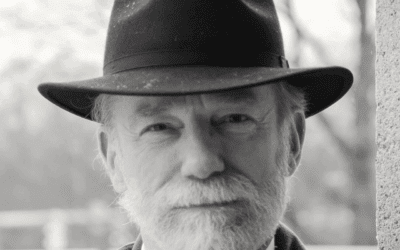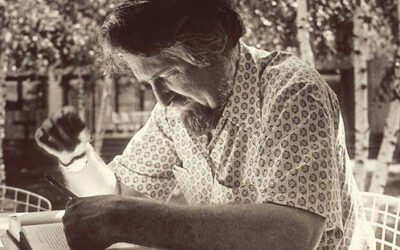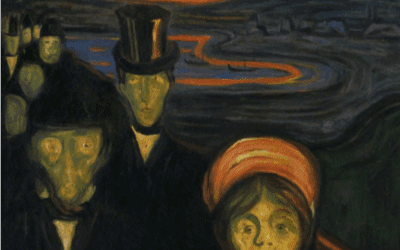The untold story of George Ward’s Roman temple estate on Shades Mountain and how his pagan individualist vision was demolished and inverted into modern Vestavia Hills’ conformist achievement culture. From eccentric mayor to empty tomb, the psychological architecture of Alabama’s most paradoxical suburb.Retry
What Happens if You Delete a Psychotherapy Note: The Therapist’s Ultimate Guide to Correcting Clinical Notes:
A comprehensive guide for psychotherapists on the legal and ethical way to correct errors in clinical notes. Learn the difference between progress notes and psychotherapy notes, and the exact protocols for fixing typos, addendums, and “wrong patient” errors without violating HIPAA.
What is an Alienist? The 19th-Century Doctors Who Forged Modern Psychiatry
You may have heard the term "alienist" in period dramas or novels, most famously in Caleb Carr's novel The Alienist. It sounds foreign, even unsettling. Yet, this antiquated job title represents one of the most important turning points in the history of mental health: the moment we stopped seeing "madness" as a moral failing or demonic possession and began to see it as a medical condition. So, what is an alienist? An alienist was a physician, prominent in the 19th and early 20th centuries, who specialized in the...
On Arrogance and Excellence: Deconstructing the Double Binds of Modern Psychotherapy
A deep critique of modern psychotherapy, exposing the flaws in ‘Evidence-Based Practice,’ the anti-scientific nature of the DSM, and the STAR*D scandal. This article argues that the profit motive and a ‘low-trust’ model are stifling clinical innovation.
Psychotherapy Ethics Conflicts: When Insurance, Liability, and Patient Care Collide
Explore the complex ethical conflicts psychotherapists face when insurance requirements, professional liability concerns, and patient care standards collide. Learn how state laws affect out-of-network providers, understand documentation dilemmas, and discover best practices for navigating competing ethical demands in mental health practice. Essential reading for therapists, counselors, and mental health professionals managing the three-way bind of modern clinical practice.
Did the State of Alabama Just Get Rid of Ketamine Therapy for PTSD?
Alabama’s new ketamine therapy guidelines reflect critical questions about treating trauma. A Hoover therapist examines why dissociative patients often worsen with ketamine, compares it to EMDR and brainspotting, and explores the limitations of research in understanding trauma recovery.
The Reality of Therapy: Why Quick Fixes Actually Cost More
Understanding why therapy takes time and why one-session quick fixes don’t work. Learn about the reality of therapeutic relationships, insurance coverage with BCBS, and how investing in quality mental health treatment in Birmingham can actually save money long-term.
The Future of Language: Evolution in the Age of Digital Convergence
Explore how digital technology is revolutionizing human language evolution, creating unprecedented linguistic phenomena while threatening traditional diversity. From platform dialects to emoji grammar, discover what’s next for communication.Retry
The Psychology of Economics: A Depth Psychological Exploration of How Money Shapes Mind and Body
The intersection of psychology and economics reveals territories that neither discipline alone can adequately map. While behavioral economics has made strides in recognizing that humans are not purely rational economic actors, it barely scratches the surface of how deeply economic systems penetrate our psychological and somatic existence. Through the lens of depth psychology, particularly Jung's analytical psychology and contemporary trauma theory, we discover that economic structures don't merely influence...
The Somatic Cost of Capital: How Economic Systems Live in Bodies
The body keeps score not only of personal trauma but of economic violence, carrying in its tissues and nervous system the accumulated impact of life under various forms of capitalism. Each economic system inscribes itself somatically, creating characteristic holding patterns, chronic activation states, and embodied defenses that reveal themselves in clinical practice. When we examine how economic pressures manifest somatically, we discover that capitalism literally lives in our bodies, shaping our musculature,...
Archetypal Economics: Gods of the Marketplace
Economic systems are never merely mechanical arrangements of exchange and production; they are theological structures that embody and activate specific archetypal patterns in the collective psyche. Each economic theory and practice constellates around archetypal cores that shape not only material relations but the very structure of consciousness within that system. When we examine economics through the lens of archetypal psychology, we discover that what presents itself as rational economic science is actually a...
The Wounded Healer as Entrepreneur: Trauma as Economic Driver
The archetype of the wounded healer, first articulated by Jung and later elaborated by scholars like Henri Nouwen, finds peculiar expression in the modern entrepreneurial landscape where personal trauma increasingly becomes the seedbed for business ventures. Across the contemporary economy, particularly in wellness, coaching, and personal development industries, we witness a massive transformation of wounds into wealth, trauma into trade. This phenomenon extends far beyond simple capitalism; it represents a...
The Alchemical Marketplace: Prima Materia to Gold in Consumer Psychology
The marketplace has always been a site of transformation, but under capitalism, it has become an alchemical laboratory where base matter undergoes psychological transmutation into objects of desire. Jung's lifelong fascination with alchemy was not mere historical curiosity but recognition that alchemical symbolism encoded profound psychological truths about transformation processes. When we examine modern consumer psychology through this alchemical lens, we discover that marketing and branding serve as...
Trauma Bonding with Capital: Stockholm Syndrome in Capitalism
The relationship between individuals and economic systems under capitalism exhibits patterns disturbingly reminiscent of trauma bonding, that psychological phenomenon where victims develop emotional attachments to their abusers. This is not metaphorical flourish but rather a precise description of the psychological dynamics at play when human beings form identificatory relationships with economic structures that systematically undermine their wellbeing. The research on trauma bonding from the National Center for...
The Shadow Economy: Collective Repression and Financial Systems
The architecture of our economic systems reveals far more than the movement of capital and commodities. Beneath the rational veneer of market mechanics lies a profound psychological infrastructure, one that Jung would recognize as the manifestation of collective shadow material projected onto the seemingly objective realm of finance. Our economic structures, far from being neutral mathematical constructs, serve as vast repositories for the repressed aspects of the collective psyche, creating what we might call a...
The Archetype’s in Brand Psychology: Building Authentic Identity Through Jung’s Timeless Wisdom
Discover how Jung’s Jester archetype and the 12 archetypal patterns transform brand identity, from therapy practices to Fortune 500 companies. Learn practical strategies for authentic archetypal branding that bridges ancient wisdom with modern neuroscience.
The Psychological Engineering of Liberty Park: How Calculated Control and Achievement Culture Built Alabama’s Most Ambitious Suburb
Liberty Park Alabama, Vestavia Hills, master-planned community, psychological engineering, achievement culture, HOA governance, The Bray development, suburban psychology, architectural control, public-private partnership, Vestavia Hills schools, controlled environments, suburban anxiety, corporate headquarters, community planning
The Psychological Architecture of Homewood: How Fear, Aspiration, and Autonomy Shaped an Alabama Suburb
An in-depth exploration of Homewood, Alabama’s psychological evolution from disease-driven suburban flight to modern struggles with excellence versus equity, examining how fear, aspiration, and fierce autonomy shaped this Birmingham suburb’s identity and ongoing challenges with diversity and inclusion.
The Psychological Engineering of Mountain Brook: How Policy Became Identity in Alabama’s Wealthiest Enclave
An in-depth psychological examination of Mountain Brook, Alabama—America’s most deliberately exclusive suburb—exploring how calculated planning, policy decisions, and social engineering created extraordinary wealth while generating a youth mental health crisis, environmental degradation, and regional inequality. A comprehensive analysis of the costs and contradictions of engineered perfection.
The Psychological Architecture of Vestavia Hills: How a Mountain Became a State of Mind
An in-depth psychological analysis of Vestavia Hills, Alabama, exploring how this affluent Birmingham suburb transformed from a Roman-inspired sanctuary into a high-pressure achievement culture, examining the material and psychological forces that shaped its development and the mental health crisis emerging from its success.
Karl Friston and Carl Jung: The Unnoticed Rehabilitation
An exploration of how Karl Friston’s Free Energy Principle and Eugene Gendlin’s Process Model provide mathematical and philosophical validation for Carl Jung’s analytical psychology, revealing that Jung’s supposedly mystical insights actually captured fundamental principles of consciousness architecture that modern neuroscience is only now beginning to understand.
The Radical Presence of Eugene Gendlin: How Felt Sensing Transforms Trauma Therapy and Political Understanding
Eugene Gendlin’s revolutionary work on the felt sense reveals how trauma disrupts the body’s natural flow of experiencing and how political oppression shapes what we can feel and think. His Focusing method offers both a powerful trauma therapy approach and a framework for understanding liberation as the restoration of our capacity to carry life forward.
Finding Beauty in America’s Forgotten Corners: Toby Huss on Photography, Acting, and the Art of Authentic Seeing
Where Art Meets Life in the American Landscape In an era where social media algorithms and political narratives seem determined to divide us, actor and visual artist Toby Huss offers a radically different perspective on American identity. Through his photography book "American Sugar Gristle" and a career spanning from cult classics like "The Adventures of Pete & Pete" to prestige television like AMC's "Halt and Catch Fire," Huss has cultivated a unique ability to find profound beauty in the most unexpected...
Navigating the Fog: An Informal Look at Postpartum Depression
Postpartum Depression: Understanding the Symptoms and Finding Support Bringing a child into the world is a life-altering experience, filled with moments of profound joy and, just as often, overwhelming challenges. It’s common to hear about the "baby blues"—periods of sadness, weepiness, or anxiety in the first couple of weeks after birth. But for many new parents, these feelings don't fade. They may intensify, becoming a heavy, persistent fog that makes it difficult to care for yourself or your new baby....
Navigating the Labyrinth of Self: An In-depth Guide to Dissociative Identity Disorder (DID)
Moving Beyond Myth to Understand a Complex Reality For decades, Dissociative Identity Disorder (DID), formerly known as Multiple Personality Disorder, has been subject to sensationalized portrayals in media, often depicted as a rare and bizarre curiosity.1 This has created a landscape of misunderstanding and stigma, leaving those who live with the condition feeling isolated and invalidated.3 The reality of DID is not one of spectacle, but of survival. It is a legitimate, though often hidden, psychological...
How to Find the Best Kind of Therapy Just for You
Navigating the Modern Landscape of Healing The journey to finding the right therapy is no longer about choosing a single, named modality from a static list. It has evolved into an act of informed self-discovery, a process that can lead to a personalized, integrated path to wellness. The most profound and lasting healing often emerges from a synthesis of approaches—one that honors your philosophical orientation, addresses your specific symptoms, respects your body's wisdom, and supports your brain's biology. This...
Adult ADHD, ADHD Screener, AuDHD, ADHD and Autism, Neurodiversity, Psychotherapy, Mental Health, Executive Function, ADHD Symptoms, Self-Assessment
Do I Have Adult ADHD? An Evidence-Based Guide & Informal Screener The Unseen Struggle of Adult ADHD For many adults, life can feel like a constant, unseen struggle. You might have a persistent feeling of being "off" or fundamentally out of sync with the world around you, leading to chronic stress and low self-esteem.1 Perhaps you've been told you're "lazy," "disorganized," or "not living up to your potential," and after years of hearing it, you've started to believe it. This experience, however, is often not...
Understanding the Peaks and Valleys: A Guide to Bipolar Disorder and an Informal Self-Screener
Explore the signs of Bipolar Disorder with our comprehensive guide. Learn about Bipolar I, Bipolar II, and mood episodes, and use our informal 30-question screener as a tool for self-reflection before speaking with a professional.
The Unseen Struggle: A Deep Dive into Purely Obsessional OCD (Pure O)
Struggling with intrusive thoughts and hidden mental rituals? Our expert guide demystifies Purely Obsessional OCD (Pure O), offering an informal screener and hope for recovery.
Have You Always Felt Different? Exploring Autism in Adulthood
The Question You've Been Asking: "Could I Be Autistic?" For many adults, the question arrives quietly at first, a gentle whisper that grows louder over time. It may surface after a conversation with a friend, after reading an article, or perhaps after a child or loved one receives a diagnosis of Autism Spectrum Disorder (ASD).1 The question is often rooted in a lifelong feeling of being fundamentally different from those around you—a sense of navigating the world with a different set of instructions that everyone...
Navigating the Echoes of Trauma: A Comprehensive Guide to Understanding and Healing from Complex PTSD (C-PTSD)
When Trauma Is Not a Single Event For many, the word "trauma" conjures images of a single, devastating event: a car accident, a natural disaster, a combat experience. While these are undoubtedly traumatic, there is another form of suffering, one that is often less visible but profoundly damaging. It is the trauma that unfolds not in a single moment, but over months, years, or even a lifetime. This is the trauma of being trapped in a situation of ongoing abuse, neglect, or captivity, where the threat is not an...
The Great Shift: Why the Market is Moving from CBT to Somatic and Neuro-Experiential Therapies for Trauma
An in-depth analysis of the paradigm shift in psychotherapy. Discover why the market, driven by trauma survivors, is moving beyond CBT to embrace faster-growing somatic and neuro-experiential therapies like Brainspotting, Somatic Experiencing, and Lifespan Integration. A comprehensive report for therapists and clients.
The Tech-Enhanced Therapy Room: A Clinician’s Guide to AI, Neuro-Tech, and Vagal Nerve Stimulators
An expert review for psychotherapists on technology integration in therapy. Covers AI’s role, neuro-tech like QEEG, VR for trauma, Polyvagal Theory, and an evidence-based review of the Alpha-Stim device for anxiety, insomnia, and depression.
What Is Neurodivergent-Affirming Therapy? (And Why It’s Not About ‘Fixing’ You)
For decades, many forms of therapy have approached neurodivergence—like Autism (ASD) or Attention-Deficit/Hyperactivity Disorder (ADHD)—as a "disorder" to be "fixed" or "managed." The goal was often to help the neurodivergent person adopt neurotypical behaviors in order to fit in.If you've been through this, you know how invalidating and exhausting it can be. You may have been taught to suppress your natural ways of being, a process now known as "masking," which leads to its own unique kind of trauma and...
Eugene Gendlin: A Biographical Timeline
In the landscape of contemporary psychotherapy, a quiet revolution has been unfolding—one that moves us away from the primacy of thoughts and verbal processing toward the wisdom held in the body's deeper knowing. At the heart of this shift stands Eugene Gendlin, a philosopher and psychologist whose work in the 1960s and 70s laid the groundwork for much of what we now understand about embodied healing. The Felt Sense: Gendlin's Revolutionary Discovery Eugene Gendlin's seminal contribution to psychotherapy emerged...
What Is Neurodivergent-Affirming Therapy? (And Why It’s Not About ‘Fixing’ You)
An expert review for psychotherapists on technology integration in therapy. Covers AI’s role, neuro-tech like QEEG, VR for trauma, Polyvagal Theory, and an evidence-based review of the Alpha-Stim device for anxiety, insomnia, and depression.
Brainspotting vs. EMDR: Which Is Right for My Trauma?
This article was written by the clinical team at Taproot Therapy Collective in Birmingham, AL. We are a group of specialized therapists dedicated to providing the most advanced, effective, and neuroscientifically-backed treatments for trauma, anxiety, and depression.
Egomaniacal, No Ego, Multiple Egos: What was James Hillman Thinking?
The Paradox of the Egoless Egoist James Hillman spent decades railing against the ego and the ego-Self axis, calling it a "monotheistic ideal" that stifled psychic life. Yet as many Jungians have pointed out, by throwing away this fundamental structural principle, Hillman's own ego simply went underground, becoming unconscious and inflating to messianic proportions. The man who rejected the ego became, paradoxically, one of the most egomaniacal figures in post-Jungian psychology: a brilliant rebel whose intellect...
The Jungian Schools: Andrew Samuels’ Map of a Divided (and United) Field
When Andrew Samuels published "Jung and the Post-Jungians" in 1985, he gave the Jungian world something it desperately needed: a map of its own territory. Like many fields that emerge from a singular founding figure, analytical psychology had fractured into different camps, each claiming to represent the "true" Jung while developing in markedly different directions. Samuels' taxonomy of three schools (later revised to four) wasn't just academic categorization; it revealed something profound about how...
Werner Herzog on Psychotherapy: A Review of Into the Abyss by Werner Herzog
A Review of Into the Abyss by Werner Herzog Trigger Warning: This essay discusses capital punishment, murder, violence, death, and contains descriptions of violent acts including attempted murder. The film and essay examine traumatic events and their psychological impact on individuals and communities. Reader discretion is advised. Werner Herzog operates on the principle that perception is reality, and to criticize the perceiver who is deeply watching based on some outmoded collective objectification is foolish...
The Architecture of Myst: When Worlds Become Real Through Design
An in-depth psychotherapeutic exploration of the Myst series’ architectural language, examining how each Age’s design reflects psychological states from Frank Lloyd Wright-inspired organic architecture to Byzantine constructivism. Discover how the Miller brothers transformed environmental storytelling into therapeutic landscapes where internal worlds become navigable territories.
How to Help Someone with Postpartum Depression: Beyond ‘Just Be Supportive
She's sitting there holding the baby, but she's gone. The person you love has disappeared into a hollow shell going through the motions of motherhood. She smiles for photos, but her eyes are empty. She says she's fine, but you watch her hands shake as she prepares another bottle. She insists she's just tired, but you know this is something deeper, darker, more dangerous than exhaustion. Or maybe you're watching him fall apart in ways no one talks about. Your partner who was so excited to be a dad now can't get...
Disenfranchised Grief: When No One Understands Your Loss”
You're grieving, but there's no funeral. No sympathy cards. No casserole dishes from concerned neighbors. No one asking how you're doing. Because according to society, what you lost doesn't count. Your pain isn't real grief. You should be over it by now. It was "just" a dog. "Just" a miscarriage. "Just" a job. "Just" a friendship. "Just" your health. "Just" a dream that died. Welcome to therapy for disenfranchised grief – the grief that society doesn't recognize, validate, or support. The grief you're expected to...
Anxiety Therapist Near Me: Beyond Basic Breathing Exercises”
Your heart is racing at 3 AM again. You've tried the breathing exercises – in for four, hold for four, out for four. You've downloaded the meditation apps. You've done the yoga, cut the caffeine, exercised regularly. Hell, you could probably teach a masterclass on "coping skills" at this point. Yet here you are, wide awake, body vibrating with that familiar electric dread, Googling "anxiety therapist near me" and wondering why nothing fucking works. Here's what the self-help industrial complex won't tell you:...
Trauma Therapist Near Me: Not All Therapy Is Trauma-Informed”
You've been in therapy for six months. Every week, you sit across from a perfectly nice therapist who nods sympathetically as you describe your symptoms. They teach you breathing exercises for your panic attacks. They help you identify cognitive distortions. They encourage you to journal about your feelings. And every week, you leave feeling like you're putting Band-Aids on bullet wounds. What nobody told you – what your well-meaning therapist might not even realize – is that trauma therapy is a completely...
Counselor Near Me: Why the Best Match Isn’t About Reviews
You're sitting in your car after another sleepless night, phone in hand, typing "counselor near me" into Google for the fifth time this week. The results are overwhelming – dozens of smiling faces, all promising to help, most with 4.8 stars or higher. You click on the one with the most reviews, the one everyone says is "the best," and book an appointment. Six sessions later, you're wondering why you feel worse than when you started. Here's what no one tells you about finding a counselor: the highest-rated...
Memory Reconsolidation: The Hidden Mechanism Behind Why Therapy Works
For over a century, neuroscientists believed that once memories consolidated into long-term storage, they became essentially permanent. Sure, you might forget details over time, and new learning could interfere with old memories, but the original memory trace itself was thought to be stable and unchangeable. This fundamental assumption dictated how we approached everything from education to psychotherapy. If traumatic memories were permanent, the best a therapist could offer was coping strategies or the creation...
The IS Map: When Eye Movements Became a System
Back in the 1970s, the founders of NLP claimed they'd discovered something remarkable: that you could tell what someone was thinking by watching where their eyes moved. Look up and to the right? Creating a visual image. Down and to the left? Accessing feelings. It was elegant, seductive, and as it turned out, completely unsupported by research. But here's where things get interesting. While the idea of reading thoughts through eye movements fell apart under scientific scrutiny, something else emerged. Therapists...
Nobody Wants Your Whiny Baby: A DBT Exercise That Actually Gets It
There's this exercise in DBT with a name that makes people laugh nervously when they first hear it: "Nobody Wants Your Whiny Baby." The name is perfect because it captures something we all know but rarely talk about directly. Here's what happens in a lot of therapy, especially when someone gets labeled with a personality disorder. The therapist, often trained in cognitive behavioral approaches, accidentally sends the message that emotions are the problem. So patients learn to just not talk about feelings. They...
When Your Mind Gets Stuck: Understanding Cognitive Rigidity in Therapy
Have you ever worked with a client who seems absolutely unable to see things any other way than their own? Someone who follows the same routines religiously and falls apart when something unexpected happens? Or maybe someone who insists there's only one right way to do things and can't understand why others don't see it? You're probably dealing with cognitive rigidity, and it's one of the most challenging issues we face as therapists. Cognitive rigidity isn't just being stubborn or set in your ways. It's a...
When Reality Breaks Our Rules: How Personality Types Defend Against Prediction Error
The Moment Reality Refuses to Cooperate We've all been there. That moment when our carefully constructed understanding of how things should work collides head-on with how they actually work. The project that should have succeeded fails spectacularly. The person who should have understood completely misses the point. The pattern that seemed so clear dissolves into chaos. What happens next, that split-second emotional response, may tell us more about personality structure than we realize. Bridging Neuroscience and...
Roberto Assagioli vs. Carl Jung: What If We Took the Hero’s Journey Backwards?
The Wizard Behind the Curtain: The Horseshoe Theory of Consciousness Think about the end of The Wizard of Oz. Dorothy has traveled the Yellow Brick Road, survived the Wicked Witch, and finally reached the great and powerful Oz, only to discover he's a fraud, a little man behind a curtain. But here's the twist. She always had the power to go home. The ruby slippers worked all along. She just had to believe in herself. This isn't the hero's journey we usually talk about in therapy. There's no descent into the...
Holy Wood: The Intersection of Forestry and Mythology
The Sacred Species and Their Archetypal Meanings In the depths of the human psyche, trees stand as primordial witnesses to our spiritual evolution. They are the axis mundi, the world pillars that connect heaven, earth, and the underworld in virtually every mythological tradition. From a Jungian perspective, trees represent the Self—rooted in the unconscious depths while reaching toward conscious enlightenment. This essay explores ten sacred tree species, examining why specific trees were chosen for particular...
The Neurobiology of Resilience: Understanding Why Some Clients Thrive in Therapy
Therapists across all modalities have observed a puzzling phenomenon that challenges our understanding of therapeutic progress: given similar presentations, symptom severity, and treatment approaches, some clients demonstrate remarkable improvement while others remain stuck or progress marginally. This differential response to therapy cannot be fully explained by diagnostic categories, therapeutic alliance quality, or even treatment compliance. Instead, researchers are increasingly recognizing resilience as a...
Moving Forward After Divorce: Navigating the Grief and Building Your New Life
Research in psychology and relationship science has consistently demonstrated that the emotional process of divorce mirrors the grieving patterns we experience after a death. Studies from the Journal of Divorce & Remarriage and work by researchers like Dr. Elisabeth Kübler-Ross have shown that divorced individuals move through similar stages of denial, anger, bargaining, depression, and acceptance that characterize bereavement. Neurological research using brain imaging has even revealed that the same regions...
Understanding the Beebe Model: A Deep Dive into Your Psyche’s Hidden Architecture
The human psyche operates like a complex orchestra, with different psychological functions playing distinct roles in how we perceive, process, and respond to the world around us. While many are familiar with basic personality typing systems, few understand the sophisticated framework that John Beebe developed to explain not just our strengths, but our shadows, our defenses, and our deepest unconscious patterns. The Beebe model takes Carl Jung's cognitive functions and maps them onto eight archetypal positions,...
The Inventions of Writing and What it Can Teach us about Psychology
The Psychological Revolution of Writing: How Scratches on Clay Rewired the Human Mind The First Writer's Dilemma: A Technology Without Users Picture this scene: Somewhere in ancient Mesopotamia, around 3200 BCE, a person has just made marks on wet clay that represent grain inventory. They've invented writing. But here's the profound psychological moment we rarely consider – this inventor now faces an extraordinary problem. They've created a revolutionary technology that's completely useless unless they can...
Terror Management Theory: What It Can Teach Us About How Trauma Is Created and Healed
Terror Management Theory (TMT) offers a profound framework for understanding the human psyche's response to existential threats and mortality awareness. This paper explores how TMT illuminates the mechanisms of trauma creation and provides insights into therapeutic healing processes. By examining the interplay between death anxiety, cultural worldviews, and self-esteem, we can better understand how traumatic experiences shatter our psychological defenses and how therapeutic interventions can rebuild them. This...
More Human Than Human: How Blade Runner Saw Our Corporate-Colonized Future
In 1982, Ridley Scott released a film that bombed at the box office but succeeded in something far more important: it showed us the future we were already building. Blade Runner wasn't science fiction. It was documentary footage from a tomorrow that capital was constructing in real-time. While audiences puzzled over whether Deckard was a replicant, they missed the more disturbing question: in a world where corporations manufacture consciousness itself, does the distinction between human and product even matter...
The True Lies We Need: What is a Zen Koan?
The Architecture of Metaphor: Truth Beyond Literal Truth Every effective therapist knows that sometimes the most profound truths arrive dressed as fiction. Metaphors are, in their essence, true lies—statements that are literally false yet psychologically, emotionally, and even neurologically accurate. When we say someone has a "broken heart," we know cardiac tissue hasn't fractured, yet this metaphor captures something essential about human suffering that medical terminology cannot touch. Metaphors work because...
Metal Gear Solid and the Metamodern: Oscillating Between Grand Narratives and Impossible Fragmentation
An in-depth analysis of how Hideo Kojima’s Metal Gear Solid series embodies metamodern philosophy through its oscillation between grand narratives and postmodern fragmentation, exploring themes of war, identity, and consciousness while paralleling Thomas Pynchon’s critique of post-WWII American empire.
The Psychology of Metal Gear Solid: War, Identity, and the Prophet in the Machine
This article contains mild spoilers from the series. Metal Gear Solid stands as one of gaming's most psychologically complex franchises, not because it tries to be, but because Hideo Kojima possesses an almost preternatural ability to understand the tensions between what we claim to value and the forces that actually drive our society. The series doesn't predict the future so much as it excavates the present, finding in our contemporary anxieties the seeds of tomorrow's crises. Each game functions as a...
Do You Know How to Trade Stocks? You Might Already Know How to Do SEO for a Small Business
If you've ever bought a stock, analyzed a chart, or built an investment portfolio, congratulations—you already understand the core principles of SEO. The skills that make a successful investor translate remarkably well to digital marketing, and that knowledge gap you think exists? It's smaller than you imagine. The Portfolio Principle: Diversification is Everything Every smart investor knows not to put all their eggs in one basket. You spread investments across sectors, balance growth stocks with value plays, and...
The Color Paradox: How Hues Control Behavior Through Mechanisms Science Can’t Explain
Color affects human behavior in ways that violate everything we understand about perception, culture, and consciousness. **Pink** reduces aggression in prisoners but only for exactly 15 minutes, **red** improves athletic performance but impairs intellectual tasks, and **blue** enhances creativity while decreasing appetite. These effects persist across cultures, work on colorblind individuals, and even function through skin exposure without visual processing. The discovery that color influences everything from...
The Psychology of Corners: How Architecture Shapes Behavior in Inexplicable Ways
The angles, curves, and corners of our built environment influence behavior through mechanisms that transcend conscious awareness or practical concerns. People consistently choose corner seats in restaurants but middle seats in theaters, rounded corners reduce stress hormones, and the angle of walls affects test scores. These architectural effects operate through unknown pathways that current theories can't explain, suggesting our brains evolved specific responses to spatial configurations that modern...
The Paradox of Ugliness in Design: Why Deliberately Bad Design Sometimes Works Better
Craigslist's interface seems frozen in 1995, yet dominates classifieds with 60 billion page views monthly. Drudge Report's chaotic layout repels designers but attracts 30 million visitors daily. Reddit's utilitarian design beats prettier competitors. Some of the most successful digital and physical spaces violate every principle of good design, suggesting that ugliness itself might serve psychological functions we don't understand. The triumph of ugly design over beautiful alternatives challenges fundamental...
Mirror, Mirror: The Bizarre Psychology of Reflections and Self-Recognition
Mirrors are so commonplace we forget how profoundly they alter consciousness. Only humans and a few other species recognize themselves in mirrors, yet this ability creates psychological effects that transcend simple self-awareness. Mirrors reduce cheating, treat phantom pain, trigger existential crises, and create neurological paradoxes that challenge our understanding of self-perception. The reflection staring back at us does more than show our appearance - it fundamentally alters our behavior, emotions, and...
The Psychology of Empty Space: Why Minimalism Sells Luxury but Clutter Sells Bargains
The amount of empty space in design triggers profound psychological responses that determine perceived value, trustworthiness, and quality. Yet the same minimalism that signals luxury in one context signals cheapness in another, through mechanisms that defy simple explanation. Our brains interpret whitespace through evolutionary, cultural, and economic lenses simultaneously, creating contradictions no single theory resolves. From Apple stores to dollar stores, from therapy offices to websites, the presence or...
The Scent of Success: How Smell Hijacks Decision-Making in Ways Science Can’t Explain
Smell is our most ancient sense, yet its influence on behavior remains profoundly mysterious. Invisible scents shape everything from trust to purchasing to moral judgments through pathways that bypass conscious awareness entirely. Unlike vision or hearing, smell directly connects to emotional and memory centers, creating effects that persist even when we know we're being influenced. The implications stretch from retail environments to courtrooms to therapy offices, revealing that odors may control our decisions...
The Hidden Psychology of Fonts: How Typography Controls Your Brain Without You Knowing
Typography silently shapes every interaction with written language, from the emails we skim to the books we savor, yet its psychological effects remain surprisingly mysterious and often contradictory. A simple font change can alter judicial sentences by years, increase medical compliance by 40%, shift political beliefs, and even change how food tastes, all through mechanisms that neuroscientists are only beginning to map. The implications stretch far beyond graphic design into the realms of education, therapy,...
The Psychology of Waiting: Why Lines Feel Shorter at Disney but Longer at the DMV
The experience of waiting defies objective time measurement in ways that continue to baffle researchers. A five-minute wait at the DMV feels eternal, while a 45-minute queue for Space Mountain flies by. This isn't just about fun versus bureaucracy; the psychology runs deeper and stranger than anyone expected. The Occupied Time Illusion MIT operations researcher Richard Larson discovered that occupied time feels 36% shorter than unoccupied time, which explains why Disney provides entertainment in queues. But...
10 Mysteries from Psychology Research: When Science Can’t Fully Explain Human Behavior
The human mind remains one of science's greatest frontiers. Despite decades of rigorous research, certain psychological phenomena continue to defy complete explanation. These mysteries persist even after controlling for obvious variables, leaving researchers with partial theories that never quite capture the full picture. Here are ten compelling examples where human behavior confounds our best attempts at understanding. 1. The Green Space Crime Reduction Effect Urban areas with more trees consistently show lower...
Reflections on Harry Stack Sullivan’s Play “The Physician”
The Paradox of Healing In the vast landscape of psychotherapeutic literature, few works capture the intricate dance between healer and patient as poignantly as Harry Stack Sullivan's play "The Physician." This lesser-known dramatic work, highlighted by Irvin Yalom in his explorations of therapeutic dynamics, offers a window into one of therapy's most profound truths: that those who heal are often themselves in need of healing, and that the therapeutic relationship transforms both participants in ways neither can...
50 Sociology and Anthropology Theories Every Therapist Should Know a Study Guide
The intersection of sociology, anthropology, and psychotherapy offers profound insights into human behavior, mental health, and healing. While therapists often focus on individual psychology, understanding the broader social and cultural contexts that shape our clients' experiences can dramatically enhance therapeutic effectiveness. This comprehensive guide explores fifty essential theories from sociology and anthropology, their origins, and their direct applications to clinical practice. Part I: Foundational...
The Algorithm’s Dark Psychology: 10 Disturbing Ways Your Mind is Being Hacked
The Ghost of Bernays in the Machine In 1929, Edward Bernays orchestrated one of history's most insidious marketing campaigns. Sigmund Freud's nephew didn't just sell cigarettes to women. He weaponized their desire for liberation, transforming toxic smoke into "torches of freedom." By staging a fake feminist protest at New York's Easter Sunday Parade, where hired debutantes lit cigarettes in defiance of social taboos, Bernays proved something disturbing: with the right psychological buttons, you could make people...
How the web 3.0 algorithms use psychology to manipulate you
We like to think we're in control of our decisions. That clicking "add to cart" was our choice. That we stayed up until 3 AM scrolling because we wanted to. That we genuinely prefer that brand of detergent. But beneath the surface of our digital lives, sophisticated psychological manipulation operates at a scale and precision that would make Cold War-era mind control experiments look quaint. These aren't conspiracy theories; they're documented techniques deployed billions of times per day, refined by armies of...
The Machine as False God: Lewis Mumford’s Pentagon of Power and the Crisis of Contemporary Psychotherapy
In 1970, Lewis Mumford published the second volume of "The Myth of the Machine," titled "The Pentagon of Power." Writing at the apex of American technocratic confidence, the year after the moon landing, at the height of the Vietnam War, amidst the birth pangs of the computer age, Mumford offered a prophecy disguised as history. He warned that humanity stood at a crossroads: we could either reassert our full humanity against the totalizing logic of what he called the "megamachine," or we would be absorbed into it,...
Language as Mirror: How Saxon and Latinate Word Choices Reflect Values and Shape Therapeutic Practice
Research shows concrete language builds stronger therapeutic alliances while abstract vocabulary can create emotional distance. Essential insights for mental health professionals on using language effectively.
The Worst Drug for You Is the One That Makes You Feel Normal: Understanding Addiction Through Modern Neuroscience
🧠 The Neurobiology of "Normal": Why Addiction is the Brain Seeking Equilibrium There's a moment that many people struggling with addiction describe with haunting clarity: the first time a substance didn't make them feel high, but made them feel normal. For the first time in their lives, they felt what they imagined everyone else felt like all the time—calm, confident, capable of handling life. This experience, often dismissed as merely "self-medicating," actually reveals something profound about the neurobiology...
Breaking the Cycle: Understanding and Healing as an Adult Child of an Alcoholic
Growing up in a household affected by alcoholism creates ripples that extend far into adulthood. If you're an adult child of an alcoholic (ACoA), you may find yourself grappling with patterns and challenges that seem mysterious until you understand their origins. This comprehensive guide explores the common experiences of ACoAs, how these early experiences shape adult life, and most importantly, pathways toward healing and growth. The Hidden Legacy: Common Issues for Adult Children of Alcoholics The Survival...
The Science of Light and Color in Trauma Therapy:
Dr. Steven Vasquez's Revolutionary Emotional Transformation Therapy In the ever-evolving landscape of psychotherapy, few innovations challenge our fundamental understanding of healing as profoundly as Emotional Transformation Therapy (ETT). Developed by Dr. Steven Vasquez over 25 years of clinical practice and research, ETT represents a paradigm shift in how we approach trauma, emotional regulation, and psychological healing. This groundbreaking therapeutic modality harnesses the power of light, color, and eye...
From Skepticism to Science: How Emotional Transformation Therapy is Revolutionizing Mental Health Treatment – A Deep Dive with MJ Denis
When Light Meets Neuroscience In the ever-evolving landscape of mental health treatment, breakthrough moments often come from the most unexpected places. What if the key to unlocking trauma, dissolving anxiety, and alleviating chronic pain wasn't found in talking through problems or even in traditional brain-based therapies, but in the precise application of colored light wavelengths? This isn't science fiction or new-age mysticism—it's the cutting-edge reality of Emotional Transformation Therapy (ETT), a...
Rolling for Wellness: How Dungeons & Dragons Teaches Emotion Regulation to Adults and Children
When Fantasy Meets Therapy In recent years, mental health professionals have begun discovering what millions of players worldwide have long suspected: there's something profoundly therapeutic about gathering around a table to embark on imaginary adventures. Dungeons & Dragons (D&D), once stigmatized as an obscure hobby, has emerged as a powerful tool for developing emotional regulation, social skills, and metacognitive awareness in both children and adults. This transformation from tabletop game to...
2025 Alabama Therapist Compliance Guide: New Laws, Paperwork Updates, and Strategic Planning
Alabama Therapists' Complete Regulatory and Financial Survival Guide 2025 Critical Updates for Practice Sustainability in an Era of Unprecedented Change Alabama therapists face transformative regulatory changes in 2025 that require immediate attention to paperwork, compliance procedures, and practice operations. The landscape has fundamentally shifted with the introduction of Lucet as BCBS Alabama's behavioral health manager, Senate Bill 101's medical consent age changes, the transition from Drug Courts to...
On the Absence of Idols: On Mythopoetic Meaning Making
"There is a very strong and very ancient emotion that is rarely mentioned or recognized: it is the anguish we feel for the absence of idols. If the eye has no image on which to rest, if there is nothing to mediate between the mental phantasm and that which simply is, then a subtle despondency creeps in. This is the atmosphere that reigns in the first dream of which we have a record, a dream told by a woman, Addudûri, overseer of the palace of Mari in Mesopotamia, in a letter etched on clay tablets more...
The Silurian Hypothesis as a Therapeutic Thought Experiment: What Ancient Civilizations Teach Us About Certainty, Humility, and the Unknown
The Silurian Hypothesis, proposed by astrophysicist Gavin Schmidt and astrobiologist Adam Frank in 2018, presents a fascinating question: if an advanced industrial civilization existed on Earth millions of years ago, would we even be able to detect it? Named after the fictional Silurians from Doctor Who, this scientific thought experiment challenges our assumptions about deep time, the permanence of civilizations, and the limits of human knowledge. While originally conceived as a tool for understanding how we...
Somatic Archeology: Excavating the Body’s Hidden Histories
Somatic archeology represents a fascinating intersection of bodywork, trauma therapy, and consciousness studies that has emerged over the past several decades. This interdisciplinary approach views the human body as a living archive of experiences, memories, and inherited patterns that can be "excavated" through careful attention and specialized techniques. Unlike traditional archeology which unearths physical artifacts from the earth, somatic archeology seeks to uncover the layers of experience held within our...
Pain Reprocessing Therapy: Rewiring the Brain’s Response to Chronic Pain
Pain Reprocessing Therapy: Rewiring the Brain's Response to Chronic Pain Understanding the Chronic Pain Crisis Chronic pain affects over 50 million adults in the United States alone, representing one of the most significant health challenges of our time. Unlike acute pain, which serves as a protective warning signal for tissue damage, chronic pain often persists long after any initial injury has healed—or sometimes develops without any identifiable physical cause at all. This disconnect between pain and actual...
The Sacred Gaze: Eyes as Windows to the Divine in Ancient Art
The human eye, that most expressive feature of the face, has held profound significance across ancient cultures as both a physical organ and a powerful symbol of divine connection, spiritual authority, and cosmic understanding. Yet the artistic treatment of eyes in ancient art reveals a fascinating paradox: the earliest human representations often deliberately omitted eyes entirely, while later civilizations would make them the most prominent and exaggerated features of their sacred art. This evolution from...
The Hidden Economics of Healthcare – Why Cutting Medicaid Costs Everyone More
The Million-Dollar Math Nobody Talks About When Joel Blackstock worked on an assertive community treatment team in Alabama, he discovered something remarkable: for every chronically homeless person with severe mental illness that his 13-person team helped, they saved the state Medicaid system one million dollars. Yet politicians still wanted to cut the program. This paradox lies at the heart of American healthcare policy - and it's costing all of us. In a revealing conversation with healthcare policy expert...
When the Robots Stop Taking Notes: A Therapist’s Guide to the Coming AI Apocalypse
Picture this: A company called Second Sight Medical Products spent years convincing blind patients to have computerized implants surgically embedded in their eyes. The Argus II retinal prosthesis system promised to restore partial vision through a complex array of electrodes that stimulated the retina. Patients underwent invasive surgery, had their skulls opened, and electronics permanently attached to their visual cortex. Then in 2020, Second Sight looked at their balance sheet and decided there wasn't enough...
From Words to Swords: The Psychology of Mastery and Self-Discovery Through Craft
Discover how master swordsmith Walter Sorrells transformed from novelist to Japanese sword maker, exploring the psychology of craftsmanship, artistic development, and finding your authentic self through dedicated practice.
Psychohistory and the Mathematics of Civilizational Fate: When Science Fiction Becomes Social Science
The Dream of Mathematical Prophecy In Isaac Asimov's Foundation series, the mathematician Hari Seldon develops psychohistory—a mathematical sociology capable of predicting the future of large populations with statistical certainty. This fictional science, combining history, sociology, and mathematical statistics, represents humanity's eternal desire to pierce the veil of time and glimpse our collective destiny. But what happens when this science fiction conceit begins to manifest in our contemporary world through...
Art as a Parallel Reality: An Interview with Konstantin Korobov
We're pleased to share this written interview with Russian artist Konstantin Korobov, conducted with the help of AI translation services. Through this cross-cultural exchange, we explore the mind of an artist who creates dreamlike, symbolic works that invite viewers into parallel realities while defying simple interpretation. His insights into art, psychology, and the creative process offer a fascinating perspective on how art can serve as a bridge between the conscious and unconscious mind. View more of...
The ADHD Experience: Understanding the Challenges and Triumphs
Attention Deficit Hyperactivity Disorder (ADHD) is a neurodevelopmental condition that impacts millions of individuals worldwide. Often misunderstood and stigmatized, ADHD is characterized by a complex interplay of inattention, hyperactivity, and impulsivity that can significantly affect daily life. This article delves into the lived experience of ADHD, exploring what it feels like for those who have it and providing guidance on recognizing the signs and seeking support. The ADHD Mind: A Constant Symphony For...
Illuminating the Kaleidoscope: A Multidimensional Perspective on Autism Spectrum Disorder
Autism Spectrum Disorder (ASD) is a complex neurodevelopmental condition that impacts individuals across multiple domains of functioning. Rather than viewing autism as a linear spectrum, it is more accurately conceptualized as a dynamic interplay of strengths, challenges, and unique characteristics that shape each person's experience. This multidimensional perspective is often represented by a pie chart or wheel model, with each slice representing a core domain of the autism spectrum. At the heart of the autism...
The Birth of Consciousness: Jungian Archetypes, Neuroscience, and Anthropology in Neil Gaiman’s Sandman
Disclaimer: Neil Gaiman, the author of The Sandman, has been accused of serious misconduct. While we do not condone his alleged actions or endorse financially supporting him, his influential work has been significant in the fields of psychology, myth studies, and consciousness exploration. This article examines the themes and ideas in The Sandman comics from an academic perspective. Neil Gaiman's groundbreaking comic book series The Sandman is a rich tapestry of mythology, fantasy, and psychology. On the surface,...
Who is Mark Turner?
The Literary Mind: Mark Turner's Cognitive Science and Its Implications for Understanding Trauma and Consciousness in Psychotherapy In the quest to understand the complexities of human consciousness and the impact of trauma on the psyche, the work of cognitive scientist Mark Turner offers a compelling and innovative perspective. Turner's groundbreaking book, "The Literary Mind," proposes that the fundamental mechanisms of thought are essentially literary in nature. This idea has profound implications for how we...
Who is Cliford Geertz?
Weaving the Web of Meaning: Clifford Geertz's Cultural Anthropology and Its Implications for Trauma and Consciousness in Psychotherapy In the realm of psychotherapy, understanding the intricate tapestry of human experience is paramount. To truly grasp the complexities of trauma and consciousness, we must look beyond the individual psyche and consider the cultural context in which it is embedded. This is where the work of renowned cultural anthropologist Clifford Geertz becomes invaluable. Geertz's seminal concept...
Living with Anxiety: Understanding and Finding Relief from Chronic Worry
What Anxiety Feels Like: The Constant Companion Anxiety can feel like having an alarm system that never turns off. Your body remains in a state of alert even when there's no immediate danger, creating a exhausting cycle of worry, physical tension, and emotional distress. For many, anxiety becomes such a constant companion that they can't remember what it feels like to be truly relaxed. The Racing Mind Living with anxiety often means your thoughts move at breakneck speed, jumping from one worry to another. You...

